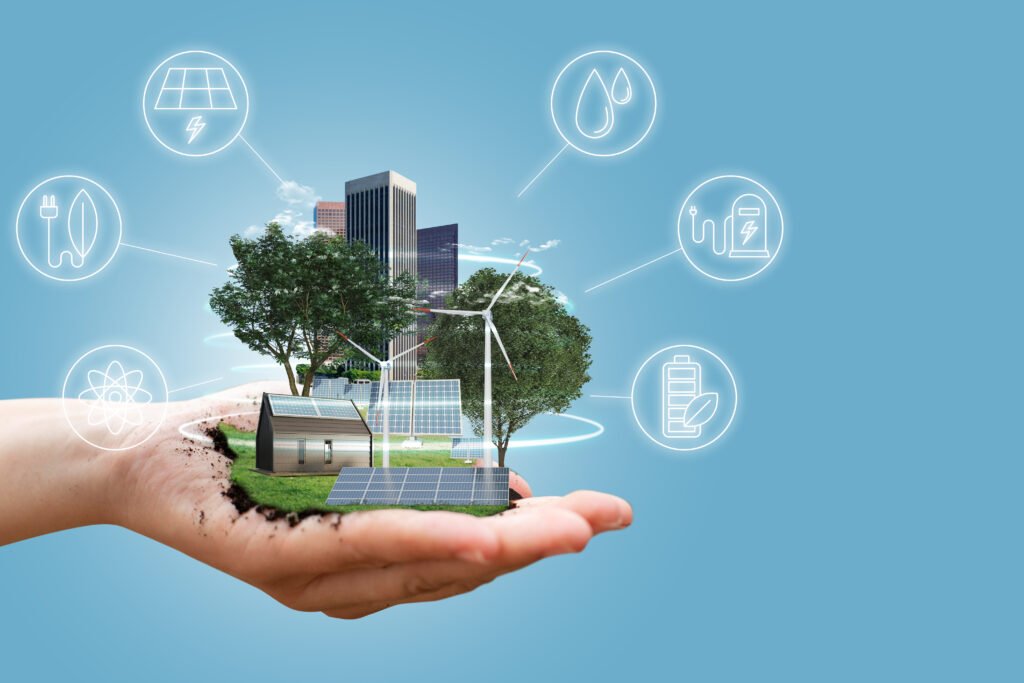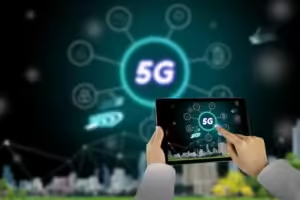Introduction to smart cities and their potential
Smart cities are the future of urban living. They utilize technology and data to improve the quality of life for their residents, increase efficiency, and create sustainable urban environments. With the rapid growth of urbanization, the need for smart cities has become crucial in addressing the challenges of climate change, population growth, and resource scarcity.
The concept of a smart city revolves around the interconnectedness of various systems, including transportation, infrastructure, healthcare, and energy. By integrating these systems and leveraging data analytics, smart cities can optimize resource allocation, reduce energy consumption, and enhance the overall well-being of their citizens.
The role of energy management in smart cities
Energy management plays a vital role in the development of smart cities. As cities continue to grow, the demand for energy increases exponentially. However, traditional energy sources are often inefficient and environmentally harmful. Hence, it becomes essential to implement innovative energy management strategies to ensure a sustainable future for urban areas.
Energy management in smart cities involves the integration of renewable energy sources, energy-efficient technologies, and advanced monitoring systems. By utilizing renewable energy sources such as solar and wind power, smart cities can reduce their dependence on fossil fuels and decrease carbon emissions. Additionally, energy-efficient technologies such as smart grids, energy storage systems, and intelligent lighting solutions enable cities to optimize energy consumption and minimize wastage.
Benefits of energy management in smart cities
The benefits of energy management in smart cities are manifold. Firstly, it contributes to the reduction of greenhouse gas emissions, combating climate change, and improving air quality. By adopting renewable energy sources and energy-efficient technologies, smart cities can significantly decrease their carbon footprint.
Secondly, energy management leads to cost savings for both the city and its residents. By optimizing energy consumption and reducing wastage, smart cities can lower their energy bills. Additionally, the implementation of smart grids and advanced metering systems allows for accurate billing and real-time monitoring of energy usage, enabling residents to make informed decisions about their energy consumption.
Moreover, energy management enhances the reliability and resilience of the energy infrastructure. By diversifying energy sources and incorporating energy storage systems, smart cities can mitigate the impact of power outages and ensure a stable energy supply. This is particularly crucial in times of natural disasters or emergencies.
Challenges and barriers to implementing energy management in smart cities
While the potential benefits are significant, there are several challenges and barriers to implementing energy management in smart cities. One of the main challenges is the high upfront costs associated with the deployment of renewable energy sources and energy-efficient technologies. The initial investment required for infrastructure development and technology integration can be substantial, making it difficult for cities with limited financial resources to embark on such projects.
Another challenge is the complexity of integrating various systems and technologies. Smart cities require a seamless integration of transportation, energy, and infrastructure systems, which often involves coordination between different government agencies, private companies, and stakeholders. This coordination can be challenging, as it requires collaboration and communication among various entities.
Furthermore, there may be regulatory and policy barriers that hinder the implementation of energy management in smart cities. Existing regulations and policies may not be conducive to the adoption of renewable energy sources or the deployment of advanced energy technologies. Policymakers must create an enabling environment that encourages innovation and supports the transition toward sustainable energy management in smart cities.
The role of technology in energy management for smart cities
Technology plays a pivotal role in energy management for smart cities. It enables the collection, analysis, and utilization of data to optimize energy consumption, enhance energy efficiency, and improve overall system performance. Advanced monitoring systems, data analytics, and artificial intelligence enable cities to gather real-time data on energy usage, identify patterns, and make data-driven decisions.
Smart grids are a prime example of how technology can revolutionize energy management in smart cities. By integrating the electricity grid with digital communication and automation, smart grids enable real-time monitoring, efficient energy distribution, and demand response. This not only reduces energy wastage but also enhances the reliability and stability of the energy infrastructure.
Additionally, Internet of Things (IoT) devices and sensors play a crucial role in energy management for smart cities. These devices can collect data on energy consumption, temperature, and occupancy, allowing for precise control and optimization of energy usage. For example, smart thermostats can adjust temperatures based on occupancy patterns, reducing energy waste in buildings.
The future of energy management in smart cities
The future of energy management in smart cities looks promising. As technology continues to advance, we can expect further integration of renewable energy sources, energy-efficient technologies, and smart systems. The development of advanced energy storage solutions, such as batteries and hydrogen fuel cells, will enable cities to store excess energy and utilize it during peak demand periods.
Moreover, the concept of energy sharing and peer-to-peer energy trading is gaining traction in smart cities. By leveraging blockchain technology and smart contracts, residents can directly trade excess energy with their neighbors, promoting energy self-sufficiency and resilience.
Artificial intelligence and machine learning algorithms will also play a significant role in optimizing energy management in smart cities. These technologies can analyze vast amounts of data, identify energy consumption patterns, and provide personalized recommendations for energy efficiency.
Conclusion and the importance of sustainable urban futures
In conclusion, energy management is a crucial aspect of developing smart cities and paving the way for sustainable urban futures. By adopting renewable energy sources, integrating energy-efficient technologies, and leveraging data analytics, cities can optimize energy consumption, reduce carbon emissions, and enhance the overall well-being of their residents.
However, some challenges and barriers need to be addressed, including high upfront costs, complex integration, and regulatory barriers. By investing in technology, fostering collaboration, and creating supportive policies, cities can overcome these challenges and unlock the full potential of energy management in smart cities.
Policymakers, urban planners, and citizens must recognize the importance of sustainable urban futures. By prioritizing energy management and embracing innovative solutions, we can create cities that are not only technologically advanced but also environmentally friendly and socially inclusive.











